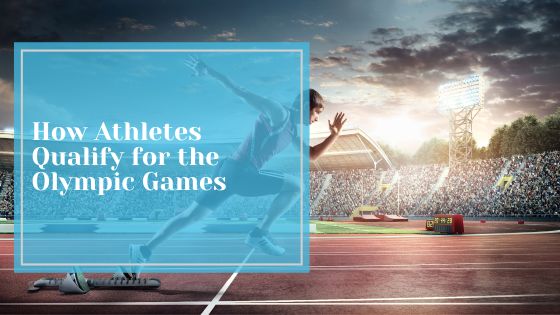The Olympic Games, held every four years, are the pinnacle of athletic competition, bringing together the world’s best athletes to compete on the global stage. But how do these athletes earn the honor of representing their countries at the Olympics? The qualification process is complex and varies significantly across different sports. Here’s an in-depth look at how athletes qualify for the Olympic Games.
1. International Federation Standards
Each sport at the Olympic Games is governed by an International Federation (IF), which sets the qualification standards and criteria. These standards ensure that the athletes competing are among the best in the world.
Qualification Standards:
- Time Trials and Benchmarks: Athletes must meet specific time standards or benchmarks set by their respective IFs in sports like swimming and athletics. For example, swimmers must achieve qualifying times in sanctioned events to earn a spot.
- Ranking Systems: Many sports, such as tennis and golf, use international ranking systems. Athletes must maintain a high enough ranking to qualify for the Olympics.
- Points Systems: Sports like cycling and gymnastics often use points systems based on performances in various competitions leading up to the Olympics.
2. Continental Quotas
Many sports allocate Olympic spots based on continental quotas to ensure global representation. This system ensures that athletes from different regions of the world, not just those from traditionally strong countries, have the opportunity to compete.
Continental Championships:
- Athletes can qualify by performing well in continental championships or games like the European Championships or the Pan American Games.
- Continental quotas vary by sport and are designed to balance competition and global diversity.
3. National Trials and Selection
Individual countries often have qualification trials and selection processes to determine which athletes will represent them at the Olympics.
National Trials:
- In the United States, for instance, the Olympic Trials are a crucial part of the qualification process for track and field, swimming, and other sports. Athletes must perform well at these trials to secure their spot.
- Other countries may have similar trials or selection events where athletes compete directly for Olympic spots.
Selection Committees:
- Some sports rely on national governing bodies or selection committees to choose their Olympic representatives based on performance criteria, potential, and strategic considerations.
4. Wild Cards and Invitations
Athletes can sometimes qualify for the Olympics through wild card entries or special invitations. These typically promote inclusivity and allow participation from countries with emerging sports programs.
Wild Cards:
- International Olympic Committee (IOC) and IFs may grant wild card entries to ensure broader participation.
- These entries are often given to athletes from underrepresented countries or those with significant potential but still need to meet the standard qualification criteria.
Host Country Privileges:
- The host nation of the Olympics often receives automatic qualification spots in certain sports to ensure local participation and enhance the home crowd experience.
5. Qualification Tournaments
Many team sports and some individual sports use qualification tournaments as a primary means of determining Olympic participants.
Team Sports:
- Sports like soccer, basketball, and volleyball hold regional and global tournaments where teams compete for a limited number of Olympic spots.
- For example, the FIFA World Cup and FIBA World Cup serve as major qualification events for soccer and basketball, respectively.
Combat Sports and Others:
- Sports like boxing, judo, and wrestling often have dedicated Olympic qualification tournaments where athletes must advance through brackets to secure their place.
6. Continuous Evaluation and Revisions
The IOC and IFs continually evaluate and revise the qualification process to address changing conditions in sports, enhance fairness, and maintain high competitive standards.
Adaptation to Circumstances:
- For instance, the qualification process for the Tokyo 2020 Olympics was adjusted due to the COVID-19 pandemic, with extended qualification periods and modified criteria.
Conclusion
Qualifying for the Olympic Games is a rigorous and multifaceted process that reflects the high standards of this prestigious event. From meeting international standards and excelling in national trials to earning spots through continental quotas and qualification tournaments, athletes must navigate a challenging path to reach the Olympics. This meticulous process ensures that only the best and most deserving athletes have the opportunity to compete for Olympic glory, making the Games a true celebration of global athletic excellence.

